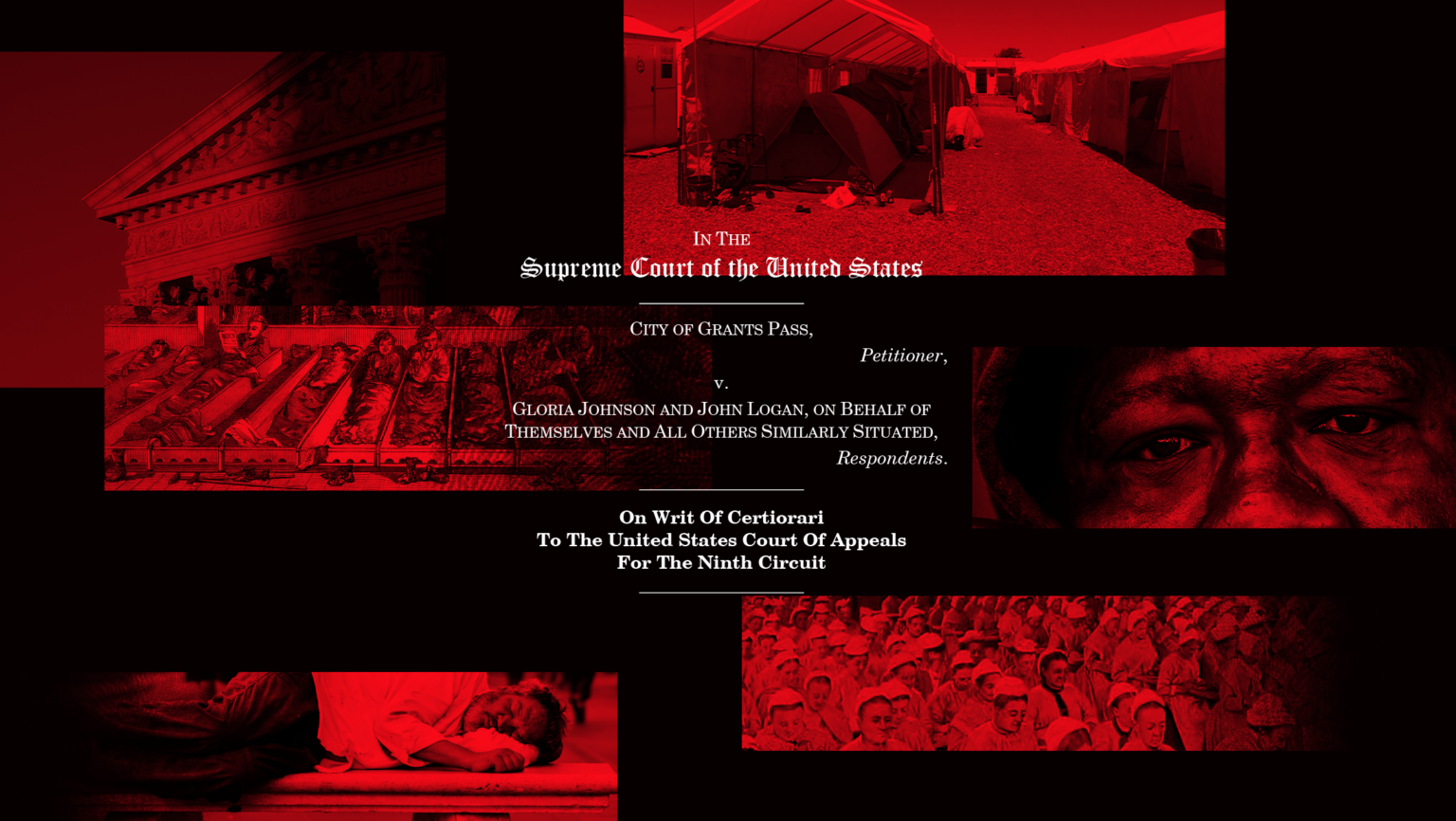The Supreme Court Homelessness Case Threatens Our Basic Humanity
Issues

This excerpt is from a piece by Rakim Brooks that originally ran in Democracy Docket on May 13, 2024.
We have criminalized homelessness before. Poorhouses existed in this nation well into the 20th century, punishing people for the same reasons as Grants Pass: for lacking the means to support food, clothing and shelter. According to the dictates of the time, punishing people for being “dependent” would disincentivize people from being poor — essentially combining anti-poverty stigma with the capitalist myth that anyone can lift themselves up with their own bootstraps. But that never worked. All that these facilities and their squalid conditions produced was ever-greater misery and despair while trampling the constitutional rights of those without shelter.
That experience should be instructive and lead the Court to affirm the 9th Circuit’s holding. But predictably, the conservative majority wants a free pass to repeat our errors and inflict new harm. Chief Justice John Roberts, in particular, was desperate to find a way to fault unhoused individuals for their own circumstances, suggesting there must be some “choice” they made that left them homeless. He even compared them to bank robbers, engaging in a rather soulless bout of victim-blaming.
In the Chief’s approach, you could hear echoes of the worst pseudoscience on homelessness. Take for example Judge Glock, a researcher at the notoriously conservative Manhattan Institute, who told USA Today that Grants Pass’s law is important because “these encampments are an incredible danger to the homeless themselves.” So dangerous that it would be better to have the state use armed force to imprison them?
